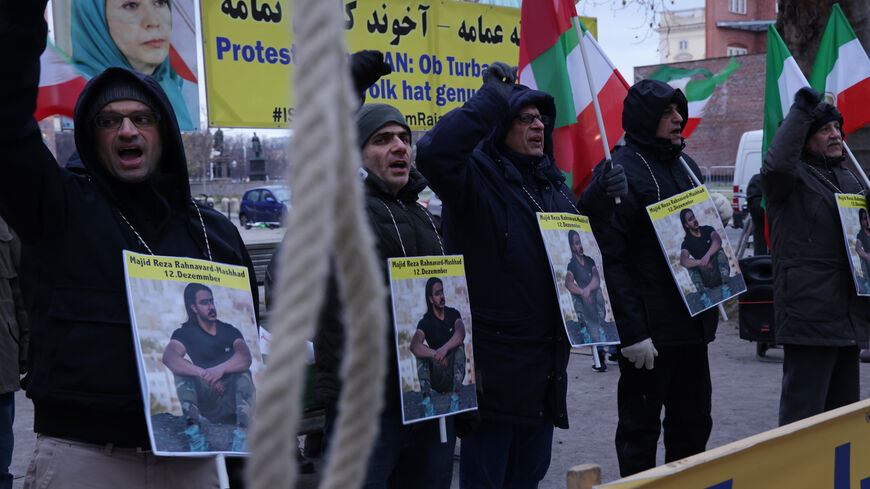Iran on Monday executed two men convicted of blasphemy, the country’s judiciary announced, carrying out a rare death sentence for such a crime.
The judiciary's Mizan news agency said in a report that Yousef Mehrad and Sadrollah Fazeli Zare were hanged in Arak prison in central Iran over crimes including insulting the religion of Islam and the prophet and promoting atheism. According to the report, the duo ran several anti-religious social media accounts and both men had “clearly confessed to their crimes.”
Mehrad and Zare were arrested in May 2020 after authorities accused them of running a Telegram channel called “Criticism of Superstition and Religion,” which, according to the authorities, spread ideas deemed insulting to Islam. In 2021, a court in Arak convicted the two men of blasphemy charges and sentenced them to death.
Rights groups say the two faced months of solitary confinement and were denied access to a lawyer and family visits. Their alleged confession to their crimes is also believed to have been extracted under torture.
“Islamic Republic authorities have once again demonstrated their medieval nature by executing two people for expressing their opinions,” the Oslo-based Iran Human Rights said in a statement on Twitter.
The NGO also called on the international community to take a “strong stance” to condemn Iran’s issuance of the death penalty against the expression of opinion.
Monday’s hangings are the latest in a string of executions after months of unrest rocked the Islamic Republic following the death in police custody of 22-year-old Mahsa Amini, arrested for improperly wearing the hijab.
Iran is the world’s second-largest executioner after China, according to figures released by Amnesty International. In 2022, at least 582 people were executed in Iran, up from 333 people in 2021, a joint report by Iran Human Rights and Paris-based Together Against the Death Penalty showed last month. The two rights organizations also said that this year alone so far, Iranian authorities have executed 151 people.
On Saturday, Iranian-Swedish dual national Habib Chaab was executed by hanging over his alleged role in planning a 2018 attack against a military parade in the southwestern city of Ahwaz that killed 25 people. Chaab was the leader of an Arab separatist movement, the Arab Struggle Movement for the Liberation of Ahwaz, which had claimed responsibility for the attack back then.
Sweden condemned the execution and summoned Iran’s acting ambassador in response. “The death penalty is an inhuman and irreversible punishment, and Sweden, together with the rest of the EU, condemns its use under any circumstances,” the Swedish Foreign Ministry said in a statement Saturday.
In January, Iranian authorities hanged British-Iranian dual national Alireza Akbari who was convicted of “corruption on earth and harming the country's internal and external security by passing on intelligence,” according to Mizan.








